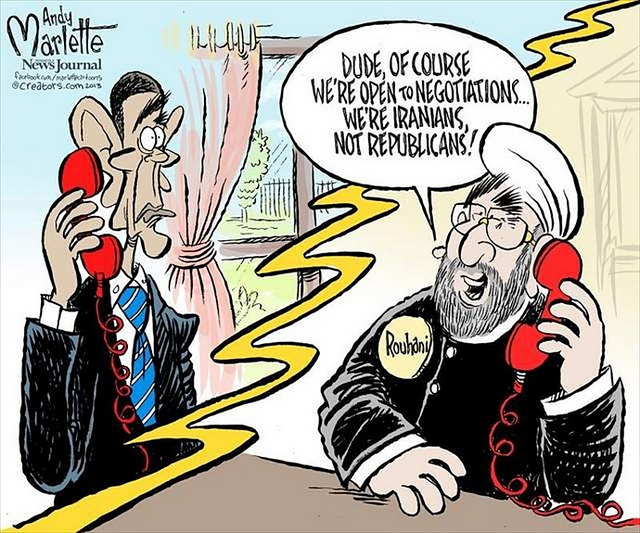The Iran Nuclear Deal: Diplomacy Deserves Its Chance

On November 24, secret backchannel negotiations authorized by the Obama administration succeeded in generating enough agreement to launch official negotiations towards a final deal for Iran's nuclear dispute.
Iran and major world powers agreed on a historic deal that freezes key parts of the country's nuclear program in exchange for temporary relief on some economic sanctions. The deal is a first step toward a more comprehensive nuclear pact to be completed in six months.
The important question that remains is whether or not the agreement between the five world leaders and Iran to suspend much of the nuclear program will be honored by both parties and move them towards a full implementation that can resolve the issues and produce normal relations with each other.
Despite domestic and foreign criticism that the agreement will allow Iran to take advantage of the sanctions relief as well as release of foreign assets from oil sales, the agreement has the potential for gaining greater momentum towards increased cooperation of shared goals for peaceful uranium development and easing of sanctions, which have significantly hurt the Iranian population.
The agreement with Iran allows for cooperative activities that achieve initial goals for each side. If and when each side does deliver their pledges, it will be the first reciprocal acts of such security significance in more than 30 years. Without such a deal, no final agreement could ever be hoped for.
Iran's huge oil reserves, closeness to China, sophisticated intelligence network, and support for Syria, Hezbollah and other Shia movements across the region have made the country the most important regional adversary to the U.S., making it even more important to reach a negotiated settlement.
Despite decades of hostility, the U.S. and Iran would not be able to move towards a larger agreement without a first step that sets up an agenda for action.
A long-term, comprehensive agreement with Iran that ends the country's potential nuclear weapons program could soften the long-term U.S.-Iranian antagonism that has been marked U.S.-designed coups, support for a brutal monarchy and Iran's support for Shia extremists in the region.
Although the U.S. took substantial risks by signing the agreement, such as a rift with Israel, Saudi Arabia and other U.S. Arab allies, which objected to an interim agreement, the deal lessens the chance of a potentially calamitous regional nuclear arms race.
Despite the domestic and foreign pressure on the Obama administration, this is the perfect time to give diplomacy a chance.
Reach Executive Producer Syuzanna Petrosyan here. Follow her on Twitter.



